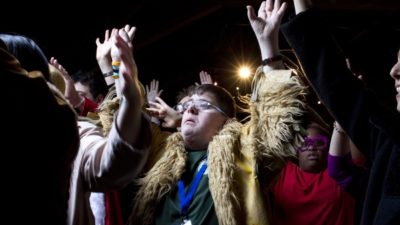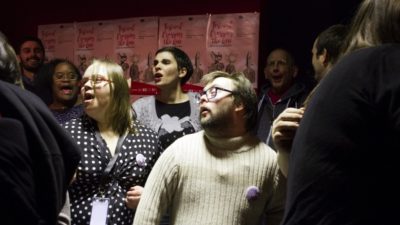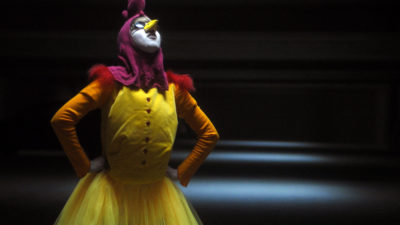Arts journalist, Bella Todd gives an overview of Crossing the Line festival, which took place in Roubaix, France from 24-26 January 2017, bringing together leading learning disability theatre companies from England, Sweden and France.
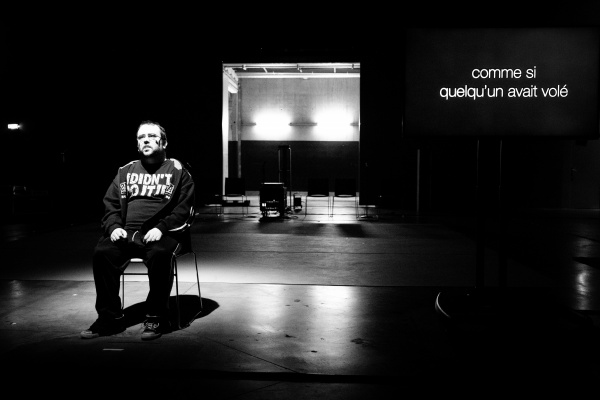
“If nothing else,” said Mind the Gap’s Executive Director, as the international audience crowded through the doors for the final performance of Crossing the Line festival, “I hope no one could go home from this week still thinking learning disabled performers only make one kind of theatre.”
It was already clear that Crossing the Line has achieved far more than that. A 2.5-year project culminating in January’s three-day festival of new work and debate, this has been a unique collaboration between three European theatre companies: Sweden’s Moomsteatern, France’s Compagnie de L’Oiseau Mouche and England’s Mind the Gap. All are leaders in their field of working with learning disabled artists. All are artistically led. Yet all three have markedly different experiences and attitudes to how the work is created, funded, critiqued and promoted. Crossing the Line was a chance for the companies to swap skills and strategies and challenge each other’s cultural givens, enjoy each other’s work and raise the collective game. Most importantly, it was an opportunity for learning disabled artists, who so often work in geographic and creative isolation, to finally meet their peers.
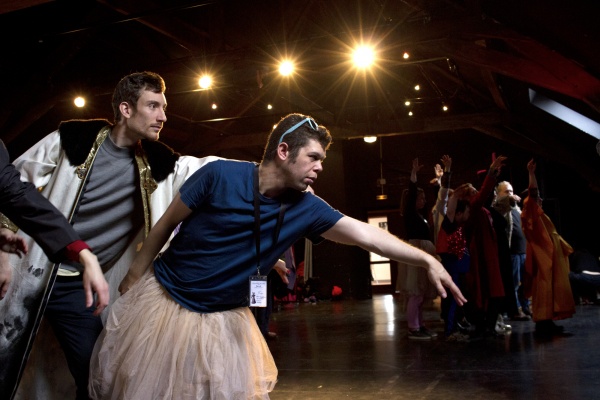
“It was like a whiplash for them,” said director Stéphane Frimat of the impact of this Creative Europe co-funded project on the performers of L’Oiseau Mouche. “We’ve had a tendency for so many years to think that we in France are the best. To be confronted with other ways of being on stage – it was like waking up.” Meanwhile Ronnie Larsson of Moomsteatern spoke of “learning things that have changed my view of how to be an actor,” and Mind the Gap’s Jez Colborne was reminded how “art is a barrier breaker”. Recurrent parallels emerged between the work of navigating linguistic differences and transcending other kinds of barrier.
Mainstream or avant garde? Classical or post-dramatic? Actors or performers? Received roles or embodied autobiographical narratives? Chaired by project dramaturg Jonathan Meth, two round-tables explored disability aesthetics and the cultural framing of learning disabled art. For Moomsteatern, the key is to insist: “our actors are actors”, and accept only arts funding. L’Oiseau Mouche, meanwhile, operate two restaurants as well as staffing the converted garage theatre in Roubaix around which the festival revolved. No one could disagree with Ben Evans of the British Council that “Access to art is a moral right, legal right, and actually one of the creative opportunities of our time”. But these companies represent three very different models of how to achieve this.
This isn’t the end for the project. A €2 million funding bid is in place to Creative Europe, which would allow Crossing the Line 2.0 to commence in 2018. This next stage would see the fellowship of three companies expand to seven, with the inclusion of 21 Theater from Poland, Rotterdams Centrum voor Theater from the Netherlands, Ireland’s Blue Teapot Theatre Company, and Hijinx Theatre from Wales. It wouldn’t just be about expansion, but making use of the groundwork of friendship the French, Swedish and British artists have laid together. As Moomsteatern producer Anna Gustafsson put it, “I feel like we have scratched the surface. I want us to work together now on a deeper level.”


